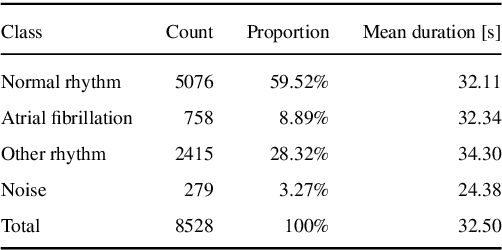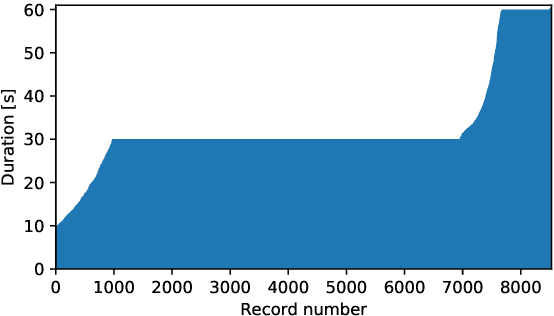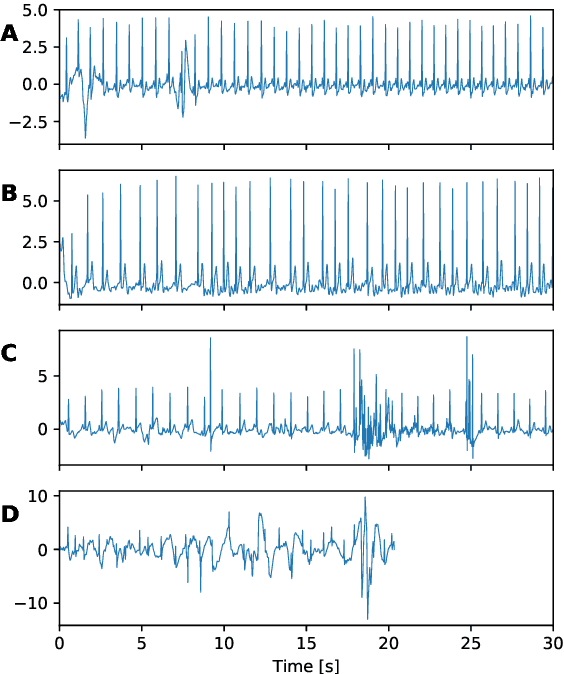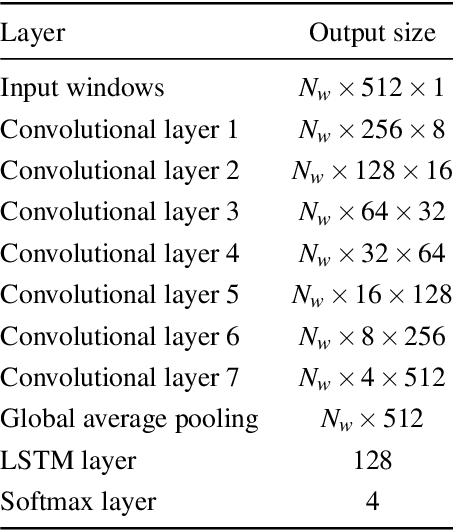Classification of Cardiac Arrhythmias from Single Lead ECG with a Convolutional Recurrent Neural Network
Paper and Code
Jun 25, 2019



While most heart arrhythmias are not immediately harmful, they can lead to severe complications. In particular, atrial fibrillation, the most common arrhythmia, is characterized by fast and irregular heart beats and increases the risk of suffering a stroke. To detect such abnormal heart conditions, we propose a system composed of two main parts: a smart vest with two cooperative sensors to collect ECG data and a neural network architecture to classify heart rhythms. The smart vest uses two dry bi-electrodes to record a single lead ECG signal. The biopotential signal is then streamed via a gateway to the cloud where a neural network detects and classifies the heart arrhythmias. We selected an architecture that combines convolutional and recurrent layers. The convolutional layers extract relevant features from sliding windows of ECG and the recurrent layer aggregates them for a final softmax layer that performs the classification. Our neural network achieves an accuracy of 87.50% on the dataset of the challenge of Computing in Cardiology 2017.
 Add to Chrome
Add to Chrome Add to Firefox
Add to Firefox Add to Edge
Add to Edge